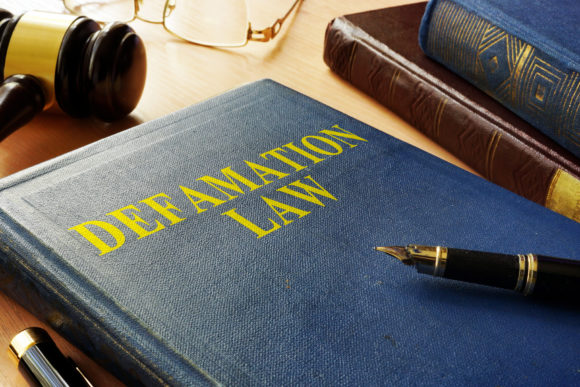A Massachusetts appeals court has ruled in favor of an online newspaper in a defamation case, holding that the statute of limitations and fair report privilege apply to articles the newspaper published regarding two incidents of domestic violence.
This comes after plaintiff Robert Wolsfelt brought claims against Gloucester Times, based in Gloucester, Mass., for publishing alleged defamatory articles regarding two separate incidents of domestic violence, each of which resulted in Wolsfelt’s arrest.
The First Article
The first incident occurred on November 30, 2011. The Gloucester Police Department received a 911 call from Wolsfelt, claiming he was injured after his fiancée pushed him down the stairs. As police were traveling to the scene, they were notified Wolsfelt’s fiancée also called to state she had locked herself in the bathroom in fear of Wolsfelt, according to the appeals court opinion document.
After officers arrived, Wolsfelt’s fiancée explained that although she told Wolsfelt not to return home after he called her from a bar where he had been drinking, he did return home while intoxicated and began searching through her pocketbook. When she told him to stop, she claimed he grabbed her by the throat. She then pushed him, causing him to fall down the stairs.
Wolsfelt was transported to a hospital where he told a different story, stating that while retrieving his computer, his fiancée pushed him down the stairs. Officers noticed that the fiancee had red marks on her neck, however. When asked about them, Wolsfelt claimed the marks could have been left when the fiancée was wrestling with her children.
After Wolsfelt was released from the hospital, he was arrested and charged with domestic assault and battery. On the same day, Gloucester Times published an article online about the incident, reporting on the facts outlined in the police report.
On February 17, 2012, a general continuance with a no abuse order was entered in Wolsfelt’s criminal case. Gloucester Times updated the article on its website, which appeared above the full original article, according to the appeals court opinion.
The Second Article
The second incident occurred less than one year later. The Gloucester Police Department received a 911 call from the fiancée, alleging Wolsfelt was attempting to harm her and that knives were present.
While on the way to the scene, officers received a call from Wolsfelt. They told him to remain outside. When officers arrived, Wolsfelt was sitting outside of the residence, apparently intoxicated. He claimed that he had an argument with his fiancée, and when she called the police, he tried to take the telephone from her and admitted to pushing her.
His fiancée was also interviewed by the officers and reiterated Wolsfelt’s account, providing a few more details. Wolsfelt was arrested and charged with domestic assault and battery.
On June 8, 2012, Gloucester Times published a second article online regarding this incident, once again outlining the facts in the police report. In February of 2013, Wolsfelt admitted to sufficient facts, and a continuance without a finding was entered. Gloucester Times posted an update, which appeared at the top of the webpage above article two, the appeals court opinion stated.
Defamation Claim
After Wolsfelt applied for a job in February 2013, he claimed he first learned about the two Gloucester Times articles and their respective updates. As a result, in June 2015, he brought an action against Gloucester Times for defamation and injunctive relief, seeking removal of the two articles and updates.
This is because he claimed the articles contained “untrue, incomplete, misleading[,] and damaging assertions,” resulting in loss of reputation and potential employment.
Under Massachusetts law, an action for defamation must be brought within three years after the date of publication of the defamatory statement, according to the appeals court opinion document.
The filing date of Wolsfelt’s complaint, however, was more than three years after article one, the article one update, and article two first were posted online. That said, it was less than three years after the publication of the article two update.
Appeals Court Decision
Despite the statute of limitations, Wolsfelt argued that each time a third party accessed the website where the articles and updates were posted counts as a new communication in which the statute of limitations starts over.
The appeals court rejected Wolsfelt’s argument, citing the single publication rule, in which a statement made to a crowd, broadcast by television or radio or printed in a newspaper or book is considered one publication even though it is received by multiple third parties or consists of many copies that are widely distributed.
“Permitting a separate cause of action for each ‘hit’ or viewing of defamatory statement by a third party on the Internet ‘would implicate an even greater potential for endless retriggering of the statute of limitations, multiplicity of suits and harassment of defendants,'” Associate Justice Dalila Wendlandt wrote in her appeals court opinion. “‘Inevitably, there would be a serious inhibitory effect on the open, pervasive dissemination of information and ideas over the Internet, which is, of course, its greatest beneficial promise.'”
Additionally, Wendlandt wrote in her opinion that the single publication rule allows a plaintiff to recover all damages stemming from a defamatory statement in one suit instead of filing separate suits each time a third party accesses the defamatory content.
Wolsfelt then pointed to the discovery rule as something that would override the statue of limitations in this case, as he claims he was not aware of the articles and updates until February 2013 when he applied for a job.
The discovery rule states that certain causes of action do not begin until “the plaintiff learns, or reasonably should have learned, that he has been harmed by the defendant’s conduct,” according to the appeals court opinion document.
However, the appeals court in this case found that where an alleged defamatory publication is broadly circulated to the public and did not involve concealment or confidential communications, the discovery rule does not apply.
Wolsfelt also argued that article two, which was published on June 8, 2012, and was updated on February 19, 2013, qualifies for the republication exception to the single publication rule, alleging the single publication rule only applies to the first release of a defamatory statement.
That said, the appeals court found that the statements in article two fall within the fair report privilege, which protects statements and actions that are reported fairly and accurately.
Wolsfelt did not dispute that he was arrested as reported by article two. However, he claims that the omission of certain details strips the article of protections established by the fair report privilege. The appeals court disagreed.
“Article two tracks almost precisely the police report of Wolsfelt’s arrest,” Wendlandt wrote in her opinion. “Wolsfelt complains only that it left out the detail that his lip was bleeding, that the fiancée later accused him not only of shoving her but also of choking her, and that Gloucester Times did not interview him to obtain ‘his side’ for the publication. None of these affect the application of the privilege; the gist and sting of article two is the same without these details.”
For these reasons, the appeals court ruled in favor of Gloucester Times that the statute of limitations applies to article one and that article two is protected by the fair report privilege.
The case is Robert Wolsfelt vs. Gloucester Times.
Was this article valuable?
Here are more articles you may enjoy.



 Experian Launches Insurance Marketplace App on ChatGPT
Experian Launches Insurance Marketplace App on ChatGPT  Insurance Issue Leaves Some Players Off World Baseball Classic Rosters
Insurance Issue Leaves Some Players Off World Baseball Classic Rosters  Kansas Man Sentenced for Insurance Fraud, Forgery
Kansas Man Sentenced for Insurance Fraud, Forgery  AIG’s Zaffino: Outcomes From AI Use Went From ‘Aspirational’ to ‘Beyond Expectations’
AIG’s Zaffino: Outcomes From AI Use Went From ‘Aspirational’ to ‘Beyond Expectations’ 


